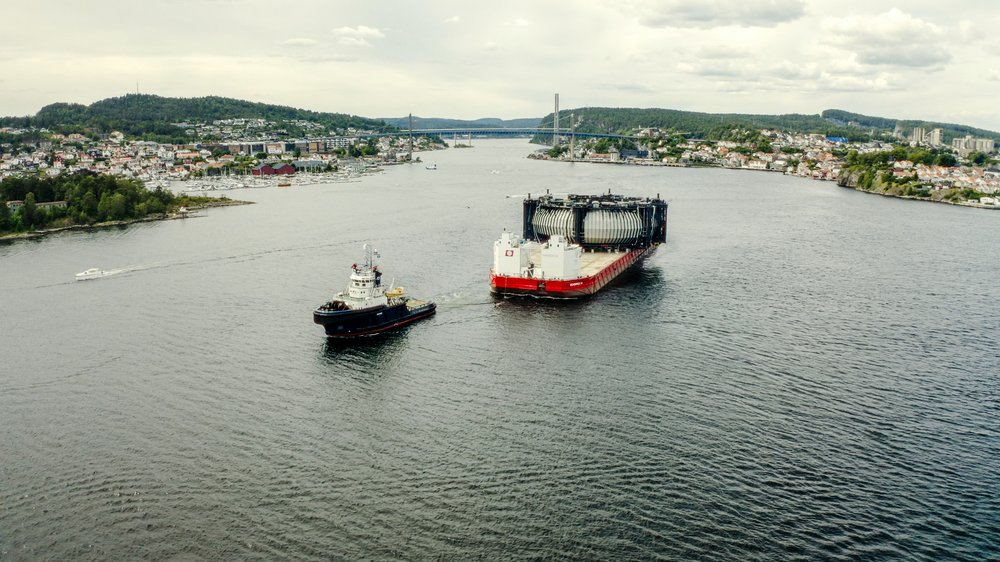With an outer diameter of 55 meters, a height of over 17 meters, and a total weight of around 600 tons, the Marine Donut is the world's largest thermoplastic structure. The unique design of this floating fish farm has the potential to revolutionize salmon farming. The outstanding design of the Marine Donut creates a controlled environment that reduces stress for the fish and allows them to grow healthier. The Marine Donut can accommodate up to 1100 tons of maximum total biomass (MTB) and was granted development licenses from the Norwegian authorities. Initially, 200,000 salmon weighing 2.5 kilograms each, which remain in the facility until they reach their harvesting weight of 5.5 kilograms.
Groundbreaking innovations
The innovation of the Marine Donut lies in its enclosed structure. It allows for the protection and maintenance of salmon health by shielding them from parasites such as sea lice. The introduction of filtered deep water prevents the incursion of salmon lice. Inside the facility, food residues and fish excrements are collected in the form of sludge. This process not only minimizes the environmental impacts of salmon farming but also prevents the spread of diseases.
Another noteworthy feature of the Marine Donut is the use of an artificial current channel that simulates a river. In the ring-shaped structure of the facility, there's a permanent current. As a result, the fish exercise and welfare are improved which positively affects the quality of their flesh.
Plastic technology from Austria
The Austria-based company AGRU Kunststofftechnik GmbH played a central role in the implementation of this ambitious project. AGRU manufactured and delivered all PE 100-RC components for the 22,000 cubic meter Marine Donut. The deliveries included 400 tons of agate gray and black plastic sheets made of PE 100-RC, as well as 200 tons of PE 100-RC piping systems and E-fittings with outer diameters of up to 1,200 mm. In addition, AGRU made a significant contribution through their comprehensive application-technical consulting.
To facilitate the handling of the plastic sheets during installation and to reduce cutting on site, AGRU manufactured them in a special custom format. On the construction site, the precise curvature of the sheets was ensured by bending them over a round formwork. After they had taken the correct shape, the sheets were joined together using butt welding. The construction of the Marine Donut also uses special stiffening ribs made from black PE sheets. They are the result of a calculation based the finite element method, which was used for the precise strength and deformation analysis of the complex geometric form.
Sustainability thanks to thermoplastic
"We are proud that we were able to make a significant contribution to the realization of this revolutionary aquaculture technology with our expertise and high-quality materials," explains Albert Lueghamer, Head of the Technical Department at AGRU. "The close collaboration with Bluegreen and AGRU's deep understanding of the challenges of thermoplastic products in salt water have significantly contributed to the successful implementation of the project."
Peter Undeutsch, Head of Sales at AGRU, emphasizes the forward-looking importance of using plastics in marine applications. "The Marine Donut is a milestone in aquaculture and demonstrates the enormous potential of thermoplastics in this field. We will continue to apply our extensive experience and knowledge in plastic technology to support the development of the aquaculture industry."


